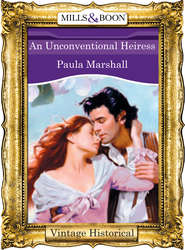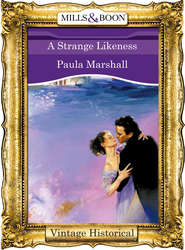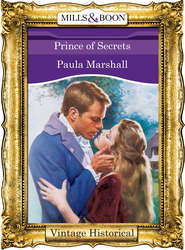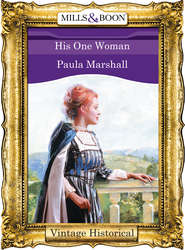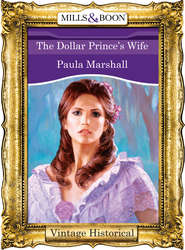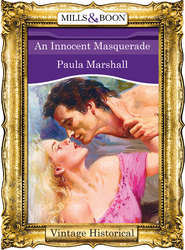По всем вопросам обращайтесь на: info@litportal.ru
(©) 2003-2024.
✖
Jack Compton's Luck
Настройки чтения
Размер шрифта
Высота строк
Поля
Rupert was cheerful, ‘You suppose correctly. Come on, let’s be off to the supper room before the grub disappears and find the American Beauty—that’s what the gossip columnists are calling her.’
‘If you must,’ said Jack. ‘I was thinking of going home.’
‘Home, where the devil’s that?’ said Rupert. ‘Up a pair of stairs somewhere cheap, I shouldn’t wonder. I’m surprised that you trouble to come to town at all if this is how you carry on when you do.’
‘Business,’ said Jack, ‘business brings me.’
‘Well, in that case,’ Rupert riposted, ‘we must go to the supper room at once. Your business tonight is to repair the Compton fortunes by snaring the Yankee beauty—a much better way of doing it than working yourself to the bone at Compton Place.’
He slid an arm through Jack’s. ‘Come on, old fellow, stop moping and enjoy yourself for a change. The war was over last July,’ he sang, ‘it said so in “John Bull”.’ He winked at Jack as he finished, just like the comedian who had introduced the song to the London stage.
Jack gave way and let Rupert lead him to the supper room. Why not? He could meet the Beauty and see if her conversation matched the force and vigour of her dancing. He very much doubted it.
They were both unaware that they had been overheard by a lady of mature years who still possessed the remnants of great beauty. She had been seated in an alcove away from the heat of the ballroom and, hearing that it was Lacey Chancellor whom Jack and Rupert had been discussing, she had grown more and more disgusted with the pair of them.
Since she was Lacey’s Aunt Sue, as well as being her companion and protector—not that Lacey needed much protection—she considered it to be her duty to warn her to keep well away from the Compton cousins. Rupert she had met before and had considered him a charming lightweight. The other man had sounded little better. A pair of predatory so-called gentlemen who had nothing better to do than try to marry her innocent niece for her money.
She would go to the supper room herself and spike their guns. Her brother, Jacob Hoyt, the General, often used the phrase and she had always wondered exactly what it meant. No matter, it sounded nicely dramatic and that was enough. Oh, and if she got the opportunity, it might be as well to advise Lacey not to dance the Charleston quite so vigorously—it seemed to be giving young men the wrong idea about her.
Aunt Sue sighed. And much notice Lacey would take of that. The women of her branch of the Chancellor family were always as lively and merry as grigs—and, by the by, what were grigs? And why were they merry?
No matter, she had her duty to do and, like Jack Compton, although from what she had overheard, she might not think it of him, Aunt Sue always did her duty.
Lacey Chancellor in the supper room was not thinking about duty at all. She had come to England to visit her distant relatives in order to get away from doing her duty for a time. It would be waiting for her, she knew, the moment that New York’s towers hove into view at the end of the sea voyage home.
In the meantime she was enjoying herself with her distant cousin, Darcey Chancellor, who was safely promised to a pretty girl back in one of the Shires, and who was having a last, reasonably innocent fling in town before he went back to marry her. ‘No hope for you, old girl,’ he had carolled at her when they had first met. ‘I can squire you round town, tell you who to avoid and who to be pals with. If you meet anyone you prefer, just say the word and I’ll find another obliging female who doesn’t want me to be serious.’
Lacey had laughed at him a little, but she had soon found out that, for all his surface frivolity, he was a man of his word.
‘Dodge him,’ he said, when he saw her talking to one seedy Earl. ‘Listen to your Uncle Darcey. He’s no money, no sense and no morals. Now, that one…’ and he indicated a younger man with a charming, if somewhat characterless, face ‘…is painfully honest and safe. A much better bet. He owns a worthwhile stable of racehorses, too. I gather that your branch of the Chancellor family are all great equestrians.’
‘True,’ said Lacey. ‘Although I’m a steady rider, not a great one.’
Now, in the supper room, she was looking around her. She knew most of those present and, despite her youth, was able to judge them at first sight nearly as well as Darcey, who had known them all his life.
There was, though, one man present talking to the ineffable Rupert Compton whom she had never seen before. He was tall, but not too tall, and held himself after a fashion which Lacey recognised, since all her Chancellor relatives possessed the same upright stance. It was that of a soldier, or a man born into a family of soldiers. He was well built, although not in any way heavy. But it was none of these attributes which had her watching him: it was his face.
He was a little past his first youth, she thought, somewhere in his early thirties, but his face was more lived-in than that. When younger he had probably been conventionally handsome, but time had written experience on what had once been youthful charm; it was the kind of experience which had Lacey giving a little shiver at the sight of it. Of course, he had probably been a soldier in the last war, and it was that which had scarred the smooth beauty of a man who had enjoyed nothing but an easy life before it.
He had stopped talking to Rupert Compton, and was now looking across the room at her. Their eyes met. His were quite unlike hers, being as grey as a stormy sea with the faintest hint of a drowned blue in them. They matched the dark blond of his hair, so dark that it was beginning to turn into a colour which was more of a bronze than a brown…
Lacey became aware that Darcey was talking to her. She wrenched her eyes away from the stranger and tried to work out what Darcey had been saying. He was no fool, though, and he was well aware of why Lacey had become a little distrait. He was not surprised when he saw the man at whom she had been staring walking towards them with Rupert Compton at his side.
Now, here was a jolly thing! Well! Well! Well! Fighting Jack Compton and Lacey Chancellor were obviously intrigued by one another. Did Jack still deserve his nickname? Nothing had been seen of him since the War had ended. Only yesterday someone had remarked that he had left the Army several years ago and had gone to manage the estate of his brother, Sir William, whom the War had rendered a hopeless and helpless cripple.
If he were still Fighting Jack then he would probably relish knowing the lively Lacey. It was almost his duty to forestall Rupert Compton, introduce them himself and watch the fur and feathers fly. She deserved an opponent worthy of her steel. Most of the men in society at the moment were either war-weary veterans or soft young fools and it was to be hoped that Jack came somewhere in the middle.
‘Well met, Rupert,’ he said. ‘And Jack, too, although I don’t suppose Jack remembers me. I was only a nipper when we last met, before the War.’
‘Darcey Chancellor, isn’t it?’ said Jack, amused by the way in which young Darcey had sidelined Rupert who liked to think of himself as one of the arbiters of what was left of society.
‘Indeed. Now, I don’t suppose you know my partner for the evening. She’s over here from the States. One of the Chancellors, no less. Lacey Chancellor, meet Fighting Jack Compton, late of the Guards, and now, I believe, running his crippled brother’s estate for him.’
‘Delighted!’ exclaimed Lacey and Jack together. Lacey, as frank as a boy, put out her hand to Jack. Jack did not shake it, as she had half-expected, but instead took it and kissed it.
As he touched her the most extraordinary thing happened—something which he had not experienced since he was a green boy and merely to see a pretty young woman had excited him. Desire roared through him, red hot. He was Fighting Jack Compton again, the man he used to be before time and chance had changed him into the man whom he knew Rupert secretly mocked. Something in the eyes of the woman who was snatching her hand away from his told him that she, too, had felt the electric current which had flashed between them.
Lacey was, if anything, more shocked than Jack. She had been squired by a number of desirable young men both back in the States, where she had almost married one, and here in England, too. Yet she had never before experienced the sensation that had passed through her when first Jack touched her hand and then kissed the back of it. And to have this happen with a man whom she had only just met, to whom she had not even spoken, was the biggest surprise of all!
If she were honest, though, the moment that her eyes had met Jack’s across the crowded room she had felt a shiver of something powerful. That, too, was a new thing.
‘Fighting Jack,’ she almost stammered, so shocked was she. ‘How come you were called that? Your prowess in the ring, perhaps?’
Jack shook his head. ‘Not really, although I boxed a little at Oxford and when I was in the Army before the war, but I was nothing out of the ordinary. I’m afraid I was something of a reckless daredevil, up to any silly jape I could think of.’
Rupert, unused to being ignored, said, ‘Come on, Jack. Silly japes they might have been, but dangerous, too. Why, Lacey, the fellows used to bet whether or not he could bring off the most daring challenges he could find. He was a devil at night-climbing tall buildings at the Varsity, weren’t you, Jack? Why, I remember when—’
Jack closed his eyes. ‘That’s enough, Rupert. I prefer to forget all that. You will give Miss Chancellor a very dated picture of me. I’m a reformed character these days. Quiet and dull, confined to the provinces.’
Lacey, however, could believe that he had deserved his nickname. True, he had spoken to her calmly enough, but there was something about him that told her of a leashed strength, now well under control. Furthermore, she didn’t believe that anyone who was merely quiet and dull could have had such an immediate and profound effect on her.
‘The quiet and dull bit, I don’t believe. And, by the way, I’m not Miss Chancellor to you, Jack. I recently discovered that one of my ancestors married a Compton of Compton Place in Sussex over a hundred years ago—so we’re distant relatives, if you’re one of those Comptons.’
‘Is that true, Jack?’ asked Rupert eagerly. ‘I’m related to the Comptons of Compton Place,’ he told Lacey, ‘so if you’re related to him, then you’re also related to me. You never told me that before, Lacey,’ he added, somewhat reproachfully. ‘Does that mean Darcey is related to us as well?’
Darcey smiled, ‘Afraid not, old fellow. I come from the other branch, but I am Lacey’s distant cousin.’
Jack said drily, ‘You know, Miss Chancellor…I mean, Lacey, most of us present at this ball are related to one another. In Regency times the gentry and nobility called themselves the cousinry because of all the intermarrying that went on among them.’
‘Welcome then, cousins,’ said Lacey giving all three a brilliant smile. ‘And will one of you kindly offer to assist me to some supper? I find dancing the Charleston most exhausting—and thirsty work into the bargain.’
‘So I noticed,’ remarked Jack, dry again. ‘And since that was my first sight of the new dance I shall be happy to feed the dancer.’
He offered Lacey his arm and skilfully steered her away from Rupert and Darcey in the direction of the supper table, leaving them to stare after him.
‘Well cut out,’ said Darcey with a grin to the somewhat offended Rupert, who was not accustomed to be sidelined by the man he thought of as his country cousin. ‘Something tells me that Fighting Jack is not yet quite dead. That was very neatly done.’
Lacey thought so, too.
‘I really came here with Darcey,’ she told him, but her smile took away any sting in her comment.
‘So I noticed,’ repeated Jack drolly. ‘I have to tell you that, while I am happy to escort you to the supper room, I am not able to partner you in the Charleston. I was exposed to it for the first time tonight.’
He was trying to be as calm with her as he could, which was difficult for him. Her nearness, her scent and her ready smile were having a disastrous effect on his body, to say nothing of his mind. He had never been so unsettled by a young woman for years.
‘Were you shocked?’ she asked him. ‘I believe that many in English society are.’
‘Not so much shocked as surprised,’ he told her. Something made him add. ‘After taking part in the war there is little that could shock me. And that’s quite enough of that,’ he added, for he had astonished himself by referring to the war. It was a taboo subject with him as it was with many ex-soldiers.






